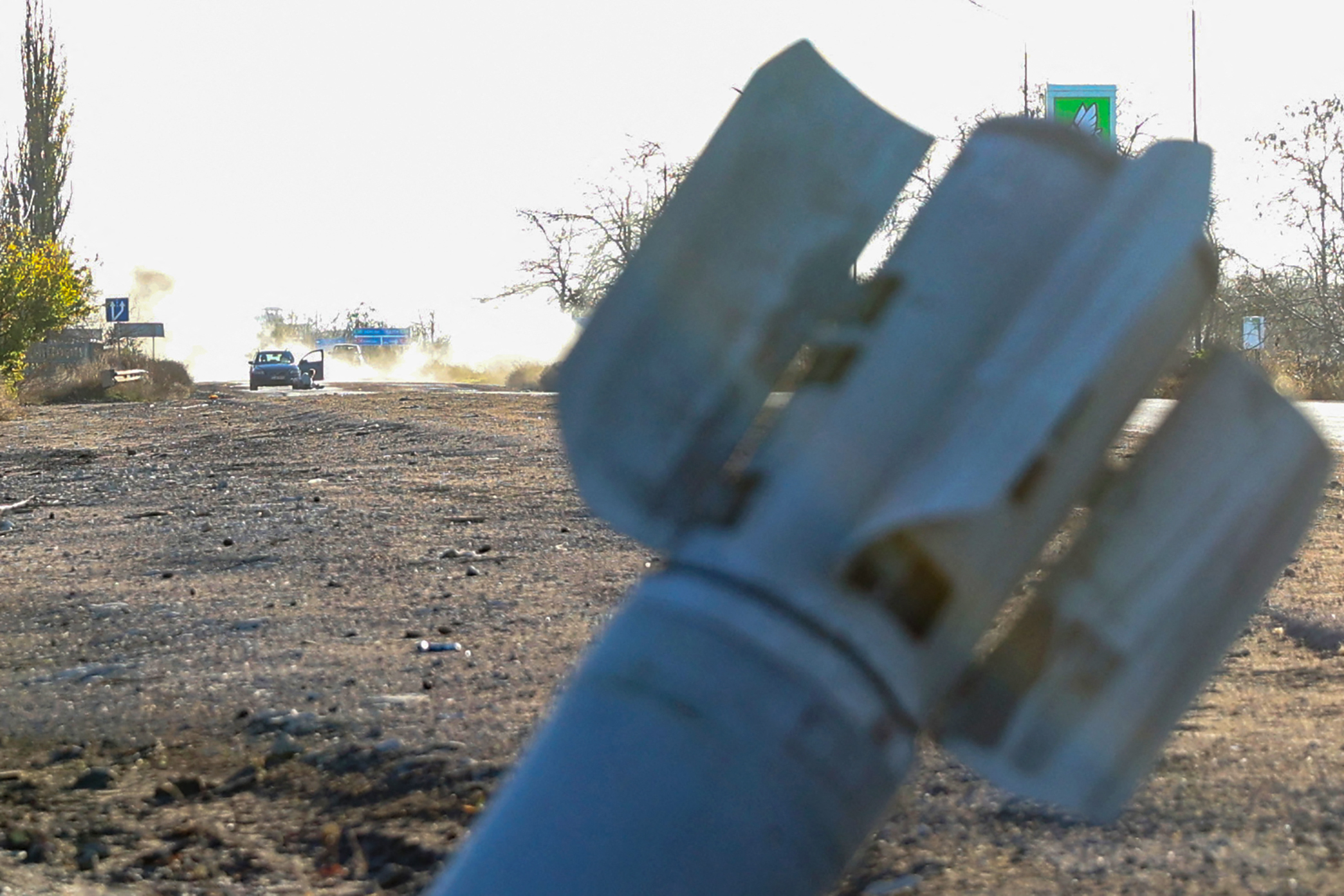Officials: 'Russian-made missiles' land in Poland, leaving at least 2 people dead


A free daily email with the biggest news stories of the day – and the best features from TheWeek.com
You are now subscribed
Your newsletter sign-up was successful
At least two people have died after missiles landed inside Poland, the Polish government confirmed Tuesday.
In a statement, a spokesperson for Poland's Ministry of Foreign Affairs said a Russian-made missile struck the small Polish town of Przewodów, near the country's border with Ukraine. The statement added that Polish Foreign Minister Zbigniew Rau "summoned the ambassador of the Russian Federation ... and demanded [an] immediate and detailed explanation."
Speaking to reporters, Polish President Andrzej Duda said it was "most likely a Russian-made missile, but this is all still under investigation at the moment. We do not have any conclusive evidence at the moment as to who launched this missile."
The Week
Escape your echo chamber. Get the facts behind the news, plus analysis from multiple perspectives.

Sign up for The Week's Free Newsletters
From our morning news briefing to a weekly Good News Newsletter, get the best of The Week delivered directly to your inbox.
From our morning news briefing to a weekly Good News Newsletter, get the best of The Week delivered directly to your inbox.
The Polish Embassy in Washington, D.C., told The Daily Beast that Polish Prime Minister Mateusz Morawiecki met with the country's Council of National Security and Defense Affairs in regard to the attack. Russia has denied responsibility, with the country's defense ministry calling the remarks from Polish officials "a deliberate provocation in order to escalate the situation."
G7 leaders in Bali for the G20 summit held an emergency meeting as well to discuss the matter. Afterward, President Biden briefly spoke to reporters, and said an investigation will take place to "figure out exactly what happened." He also decried the "totally unconscionable" Russian missile attacks in Ukraine, and said the U.S. supports Ukraine "fully in this moment."
The attack in Poland, a notable member of the North Atlantic Treaty Organization (NATO), called into question the potential use of the treaty's Article V doctrine. This clause codifies NATO's "collective defense," stating, "If a NATO ally is the victim of an armed attack, each and every other member of the Alliance will consider this act of violence as an armed attack against all members and will take the actions it deems necessary to assist the ally attacked."
While Article V has only been invoked once in NATO history, following the Sept. 11 terrorist attacks, the attack on Poland could have the potential to pull additional NATO members into armed conflict.
A free daily email with the biggest news stories of the day – and the best features from TheWeek.com
The incident in Poland followed a period in which Russia launched a massive barrage of missiles into Ukraine, causing blackouts across the country.
This is a breaking news story and has been updated throughout.
Justin Klawans has worked as a staff writer at The Week since 2022. He began his career covering local news before joining Newsweek as a breaking news reporter, where he wrote about politics, national and global affairs, business, crime, sports, film, television and other news. Justin has also freelanced for outlets including Collider and United Press International.
-
 Quentin Deranque: a student’s death energizes the French far right
Quentin Deranque: a student’s death energizes the French far rightIN THE SPOTLIGHT Reactions to the violent killing of an ultra-conservative activist offer a glimpse at the culture wars roiling France ahead of next year’s elections.
-
 Secured vs. unsecured loans: how do they differ and which is better?
Secured vs. unsecured loans: how do they differ and which is better?the explainer They are distinguished by the level of risk and the inclusion of collateral
-
 ‘States that set ambitious climate targets are already feeling the tension’
‘States that set ambitious climate targets are already feeling the tension’Instant Opinion Opinion, comment and editorials of the day
-
 Munich Security Conference: a showdown between Europe and Trump?
Munich Security Conference: a showdown between Europe and Trump?Today’s Big Question Report suggests European leaders believe they can no longer rely on the US for military support – but decoupling is easier said than done
-
 What is ‘Arctic Sentry’ and will it deter Russia and China?
What is ‘Arctic Sentry’ and will it deter Russia and China?Today’s Big Question Nato considers joint operation and intelligence sharing in Arctic region, in face of Trump’s threats to seize Greenland for ‘protection’
-
 What would a UK deployment to Ukraine look like?
What would a UK deployment to Ukraine look like?Today's Big Question Security agreement commits British and French forces in event of ceasefire
-
 Would Europe defend Greenland from US aggression?
Would Europe defend Greenland from US aggression?Today’s Big Question ‘Mildness’ of EU pushback against Trump provocation ‘illustrates the bind Europe finds itself in’
-
 Did Trump just end the US-Europe alliance?
Did Trump just end the US-Europe alliance?Today's Big Question New US national security policy drops ‘grenade’ on Europe and should serve as ‘the mother of all wake-up calls’
-
 Is conscription the answer to Europe’s security woes?
Is conscription the answer to Europe’s security woes?Today's Big Question How best to boost troop numbers to deal with Russian threat is ‘prompting fierce and soul-searching debates’
-
 Trump peace deal: an offer Zelenskyy can’t refuse?
Trump peace deal: an offer Zelenskyy can’t refuse?Today’s Big Question ‘Unpalatable’ US plan may strengthen embattled Ukrainian president at home
-
 Vladimir Putin’s ‘nuclear tsunami’ missile
Vladimir Putin’s ‘nuclear tsunami’ missileThe Explainer Russian president has boasted that there is no way to intercept the new weapon
